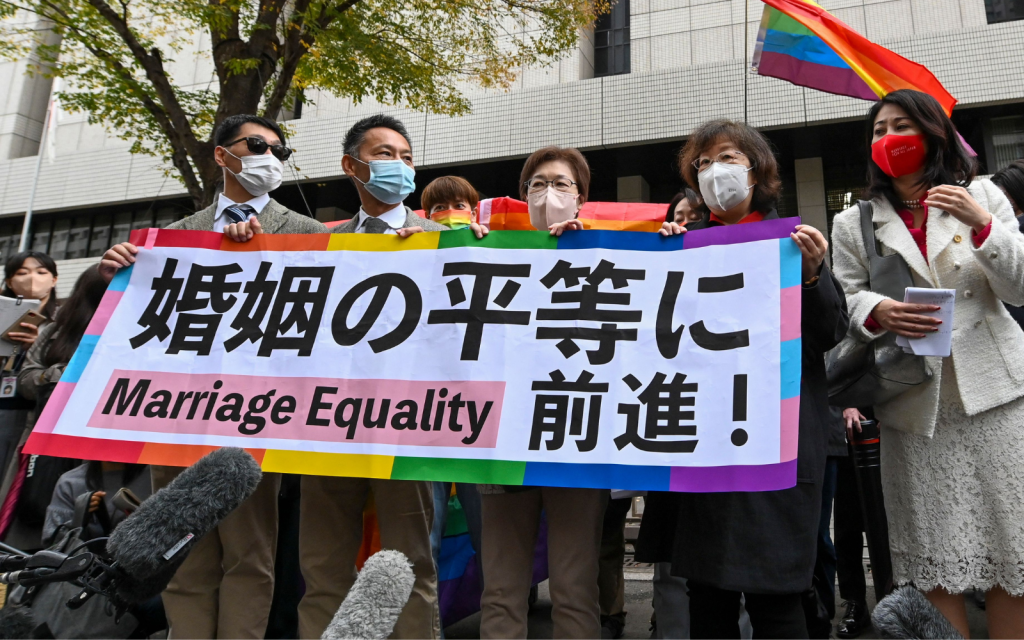Why Shinjiro Atae coming out is so important for LGBTQ+ representation in Japan
Author: Amelia Hansford
Shinjiro Atae’s announcement could do a wealth of good for LGBTQ+ rights in Japan. (Getty)
J-pop idol Shinjiro Atae has surprised fans by coming out as gay, live on stage.
The Japanese singer-songwriter told a crowd of 2,000 fans about his sexuality during a performance in Tokyo on Wednesday (26 July).
“I respect you and believe you deserve to hear this directly from me,” he said. “For years, I struggled to accept a part of myself. But now, after all I have been through, I finally have the courage to open up to you: I am a gay man.”
The 34-year-old star, best known for featuring in J-pop group AAA, was met with a wave of cheering and applause from the crowd.
His former bandmates and family joined him to show respect and provide support during the show.
“I am 200 per cent supportive,” Atae’s mother told the press following her son’s announcement.
While the moment was certainly one to remember for Atae, his friends, family and fans, the moment could also prove important given the wider context of LGBTQ+ rights and representation in Japan.
According to the community-driven LGBTQ+ rights index Equaldex, Japan is 44th out of 197 countries in the world in terms of rights for the queer community.
While openly identifying as homosexual is legal, and discrimination protections are in place, same-sex marriage is yet to be recognised in Japan. In addition, there are few protections for LGBTQ+ people against systemic discrimination, while conversion therapy has not be banned, and donating blood requires a six-month deferral period for LGBTQ+ people.
This means that Atae being the first pop star in the country at his level of stardom to come out as gay, could contribute a new level of understanding and acceptance to help implement protections for LGBTQ+ people. Or at least get important conversations started.
Japan is the only country in the G7 political forum that hasn’t legalised same-sex marriage.
However, legal efforts to force the government to recognise same-sex marriages have been filed by human rights groups.
The latest legal move, filed by a group of activists and LGBTQ+ couples, argued that a ban against same-sex marriage had relinquished their access to certain rights such as joint home ownership and the right to adopt.

Earlier this year, a Nagoya district court ruled that the ban is “unconstitutional” despite two other courts decreeing that the ban is in line with the constitution, which defines marriage as based on “the mutual consent of both sexes”.
While the ruling is not legally enforceable, it represents a shift in acceptance in the East Asian country, and Atae’s coming out is one more step towards the representation needed for legal recognition and protection of LGBTQ+ couples.
His announcement comes amid the passing of a law addressing anti-LGBTQ+ discrimination in the country, but it’s one activists say doesn’t go far enough.
Advocacy organisation Human Rights Watch wrote in a statement earlier this month that it believed prime minister Fumio Kishida “should go further” and implement a “comprehensive non-discrimination act.”
Similarly, the opposition Constitutional Democratic Party submitted a same-sex marriage bill in March.
Kishida has been criticised in the past for his stance on same-sex marriage, having said that he believes it could “change people’s view on family” and “values and society.”
His approval rating has dipped to around 30 per cent, in part due to comments about the LGBTQ+ community.
According to a global Ipsos survey, at least 69 per cent of Japanese citizens support legal recognition of same-sex marriage, while 68 per cent believe same-sex couples should have the right to adopt.
Actual Story on Pink News
Author: Amelia Hansford





